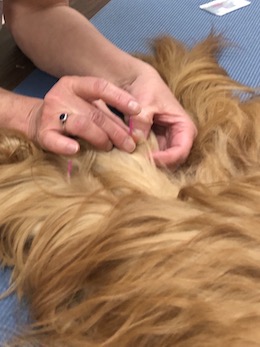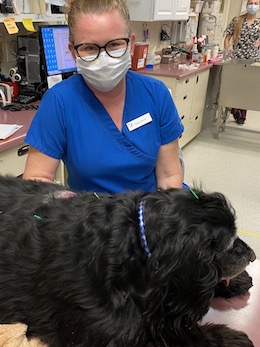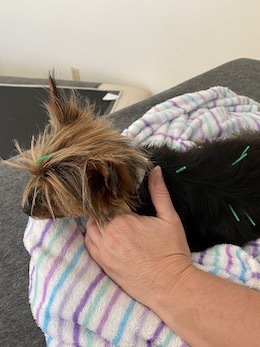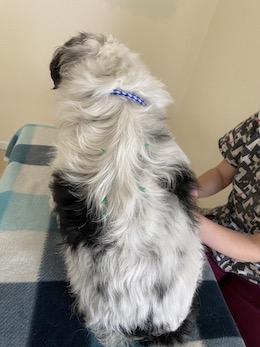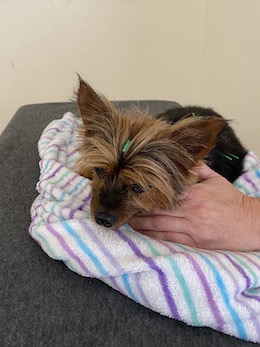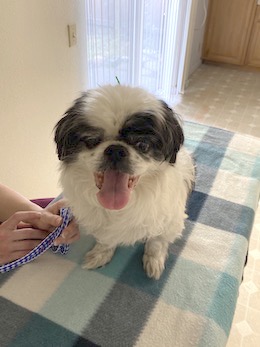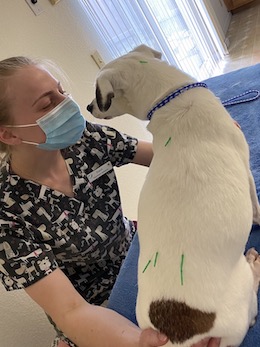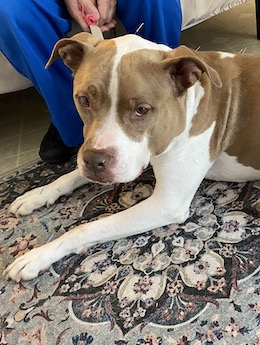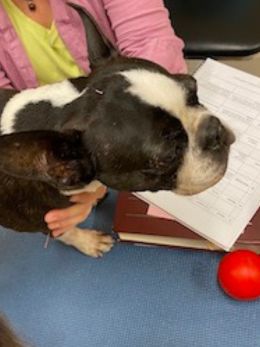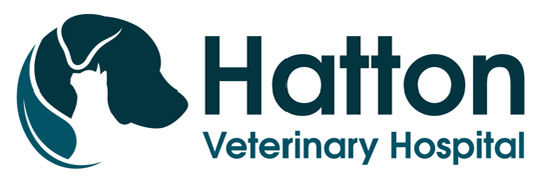Pet Acupuncture and Integrative Veterinary Medicine
Acupuncture and Traditional Chinese Veterinary Medicine (TCVM) is a well-established tool for diagnosing and treating many ailments that has been employed for literally thousands of years.
Welcome to Hatton Veterinary Hospital, where we believe in the power of pet acupuncture and integrative veterinary medicine. With a history spanning thousands of years, acupuncture has proven its effectiveness in countless cases. In fact, the US National Institutes of Health’s National Library of Medicine boasts over 31,000 research papers on the subject, with more than 6,100 specifically focused on animals (www.pubmed.gov).
At Hatton Veterinary Hospital, we are thrilled to merge our expertise in Western medicine and surgery with the artful practice of acupuncture. Our goal is to enhance pain management and improve the overall quality of life for our patients. If you have any questions, please don’t hesitate to reach out to us.
As the identification of imbalances requires a different perspective on disease, we may need to ask additional questions that may not have been covered during your regular office visits. Often, multiple issues need to be addressed, but we may not be able to tackle all of them simultaneously. We kindly request that you plan for three initial acupuncture sessions to assess your pet’s response. Within this timeframe, most conditions should show noticeable improvement if they are likely to respond positively. Depending on the condition, your pet may benefit from periodic “tune ups” or additional therapy thereafter.
Our approach to Traditional Chinese Veterinary Medicine (TCVM) is truly integrative, as we strive to combine the best of Eastern and Western medicine to deliver optimal care for your beloved pet.
Frequently Asked Questions
Why is Balance important for my pet?
In both Western and Eastern health practices, balance is achieved when we achieve a healthy state. The body, the mind and the environment must cooperate to create physical harmony. When things get out of balance, the immune system over acts, or viral pathogens invade and upset the body’s temperature balance and cause a fever, or a tumor develops to disrupt normal organ function – things are out of balance. Acupuncture and Integrative Veterinary Medicine are ways to help restore a balanced healthy state.
What is Acupuncture?
Acupuncture has been practiced for thousands of years in both animals and humans in China. Modern research has determined that acupoints associate with areas where there are high densities of free nerve endings, small blood vessels, and lymphatics. Stimulating these points have been shown to release beta-endorphins, serotonin, and other neurotransmitters. Acupuncture points have been shown to affect other areas of the body, and these points have been mapped out and are called meridians or channels. By stimulating specific points along a meridian or channel, one can affect various systems in the body to help alleviate stagnation, improve the flow of energy and Qi, and this enables the body to heal itself. Acupuncture involves using a variety of methods to achieve this, including very small, sterile, dry needles, electrical stimulation of these needles, and/or injecting a solution into acupoints to stimulate the channels It is very safe, and can be done in conjunction with other Western medical treatments to help ensure the best outcome possible for your pet’s particular situation.
Who can perform acupuncture on my pet?
Only licensed veterinarians are qualified to practice veterinary acupuncture in most states in the USA, and should have received formal training and certification for such practice.
How long does a treatment session take?
Each treatment session usually takes between 20-45 minutes. It is best to help your pet relax and calm down before treatments. While exercise is one way to help them calm down, we suggest walking them at least one hour before the appointment in order to allow their breathing and energy to settle. At the same time, if they have not had any exercise and are wound up due to lack of exercise, a nice walk to expel excess energy is a good idea, still allowing for some cool down to take place before their actual treatment.
How soon can we expect results?
Often results can be seen immediately, but some cases will require several treatments. Typically a minimum of 3-5 treatments 1-2 weeks apart for chronic conditions are needed before one can expect notable improvement. Each case is unique, but it is best to plan on committing to 3 treatments before fully evaluating results. Acupuncture helps the body to rebalance, and that may involve giving the body some time to adjust.
Does acupuncture hurt?
The needles are very thin, in some cases as fine as hair, and in most cases it is not painful. Sometimes because of the relaxation effects with acupuncture, animals may even fall asleep during treatment. They may react initially to the insertion of the needle because of something known as “De-Qi” (the arrival of Qi). This is expected and a good indication for a good response to therapy. In general, sedation is not recommended.
What types of conditions respond well to acupuncture therapy?
Many conditions respond particularly well to acupuncture including musculoskeletal problems, muscle soreness, back pain, osteoarthritis, intervertebral disc disease, neurological disorders, seizures, nerve paralysis, GI disorders including diarrhea, vomiting, constipation, as well as chronic conditions such as asthma, renal disease, liver disease, skin and ear conditions, and behavioral problems. Acupuncture is especially useful with quality of life issues which may involve cancer (more info on using TCVM for treating cancer can be found at this link), hospice care, as well as performance enhancements and prevention of disease.
When is acupuncture not indicated?
Acupuncture should be used with caution in conditions which involve fractures, acute trauma and/or blood loss, open wounds, and pregnancy.
What exactly is Integrative Veterinary Medicine and Traditional Chinese Veterinary Medicine?
Traditional Chinese Veterinary Medicine (TCVM) is the practice of diagnosing your pet’s pattern diagnosis in order to identify the best treatment plan to help restore balance. Combining TCVM with our current Western based medical practice is known as Integrative Veterinary Medicine. Using Integrative Veterinary Medicine we may also incorporate other modalities that may help support your pet’s health care including herbal supplements and food therapy. One reason we have found TCVM and acupuncture so appealing is that it is rarely associated with negative side effects. Treatment can be accomplished without the need for a lot of pharmaceuticals which may or may not have a known mechanism of action themselves, and we can achieve remarkable results supporting our pets utilizing their own resources.
